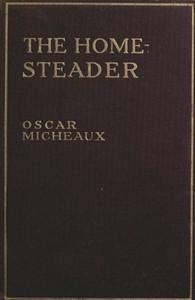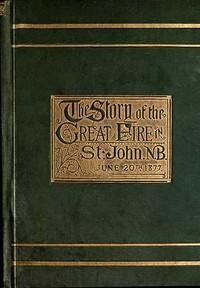|
|
Read this ebook for free! No credit card needed, absolutely nothing to pay.Words: 26442 in 5 pages
This is an ebook sharing website. You can read the uploaded ebooks for free here. No credit cards needed, nothing to pay. If you want to own a digital copy of the ebook, or want to read offline with your favorite ebook-reader, then you can choose to buy and download the ebook.

: Socialism Utopian and Scientific by Engels Friedrich Aveling Edward B Translator - Socialism@FreeBooksWed 07 Jun, 2023 ered the theistic prejudices of Baconian materialism; Collins, Dodwall, Coward, Hartley, Priestley similarly shattered the last theological bars that still hemmed-in Locke's sensationalism. At all events, for practical materialists, Theism is but an easy-going way of getting rid of religion." Thus Karl Marx wrote about the British origin of modern materialism. If Englishmen nowadays do not exactly relish the compliment he paid their ancestors, more's the pity. It is none the less undeniable that Bacon, Hobbes, and Locke are the fathers of that brilliant school of French materialists which made the eighteenth century, in spite of all battles on land and sea won over Frenchmen by Germans and Englishmen, a pre-eminently French century, even before that crowning French Revolution, the results of which we outsiders, in England as well as in Germany, are still trying to acclimatize. There is no denying it. About the middle of this century, what struck every cultivated foreigner who set up his residence in England, was, what he was then bound to consider the religious bigotry and stupidity of the English respectable middle-class. We, at that time, were all materialists, or, at least, very advanced freethinkers, and to us it appeared inconceivable that almost all educated people in England should believe in all sorts of impossible miracles, and that even geologists like Buckland and Mantell should contort the facts of their science so as not to clash too much with the myths of the book of Genesis; while, in order to find people who dared to use their own intellectual faculties with regard to religious matters, you had to go amongst the uneducated, the "great unwashed," as they were then called, the working people, especially the Owenite Socialists. But England has been "civilized" since then. The exhibition of 1851 sounded the knell of English insular exclusiveness. England became gradually internationalized, in diet, in manners, in ideas; so much so that I begin to wish that some English manners and customs had made as much headway on the Continent as other continental habits have made here. Anyhow, the introduction and spread of salad-oil has been accompanied by a fatal spread of continental scepticism in matters religious, and it has come to this, that agnosticism, though not yet considered "the thing" quite as much as the Church of England, is yet very nearly on a par, as far as respectability goes, with Baptism, and decidedly ranks above the Salvation Army. And I cannot help believing that under these circumstances it will be consoling to many who sincerely regret and condemn this progress of infidelity, to learn that these "new-fangled notions" are not of foreign origin, are not "made in Germany," like so many other articles of daily use, but are undoubtedly Old English, and that their British originators two hundred years ago went a good deal further than their descendants now dare to venture. At all events, one thing seems clear: even if I was an agnostic, it is evident that I could not describe the conception of history sketched out in this little book, as "historical agnosticism." Religious people would laugh at me, agnostics would indignantly ask, was I going to make fun of them? And thus I hope even British respectability will not be overshocked if I use, in English as well as in so many other languages, the term, "historical materialism," to designate that view of the course of history, which seeks the ultimate cause and the great moving power of all important historic events in the economic development of society, in the changes in the modes of production and exchange, in the consequent division of society into distinct classes, and in the struggles of these classes against one another. This indulgence will perhaps be accorded to me all the sooner if I show that historical materialism may be of advantage even to British respectability. I have mentioned the fact, that about forty or fifty years ago, any cultivated foreigner settling in England was struck by what he was then bound to consider the religious bigotry and stupidity of the English respectable middle-class. I am now going to prove that the respectable English middle-class of that time was not quite as stupid as it looked to the intelligent foreigner. Its religious leanings can be explained. But the great international center of feudalism was the Roman Catholic Church. It united the whole of feudalized Western Europe, in spite of all internal wars, into one grand political system, opposed as much to the schismatic Greeks as to the Mohammedian countries. It surrounded feudal institutions with the halo of divine consecration. It had organized its own hierarchy on the feudal model, and, lastly, it was itself by far the most powerful feudal lord, holding, as it did, fully one-third of the soil of the Catholic world. Before profane feudalism could be successively attacked in each country and in detail, this, its sacred central organization, had to be destroyed. Moreover, parallel with the rise of the middle-class went on the great revival of science; astronomy, mechanics, physics, anatomy, physiology, were again cultivated. And the bourgeoisie, for the development of its industrial production, required a science which ascertained the physical properties of natural objects and the modes of action of the forces of Nature. Now up to then science had but been the humble handmaid of the Church, had not been allowed to overstep the limits set by faith, and for that reason had been no science at all. Science rebelled against the Church; the bourgeoisie could not do without science, and, therefore, had to join in the rebellion. The above, though touching but two of the points where the rising middle-class was bound to come into collision with the established religion, will be sufficient to show, first, that the class most directly interested in the struggle against the pretensions of the Roman Church was the bourgeoisie; and second, that every struggle against feudalism, at that time, had to take on a religious disguise, had to be directed against the Church in the first instance. But if the universities and the traders of the cities started the cry, it was sure to find, and did find, a strong echo in the masses of the country people, the peasants, who everywhere had to struggle for their very existence with their feudal lords, spiritual and temporal. The long fight of the bourgeoisie against feudalism culminated in three great, decisive battles. The first was what is called the Protestant Reformation in Germany. The war-cry raised against the Church by Luther was responded to by two insurrections of a political nature: first, that of the lower nobility under Franz von Sickingen , then the great Peasants' War, 1525. Both were defeated, chiefly in consequence of the indecision of the parties most interested, the burghers of the towns--an indecision into the causes of which we cannot here enter. From that moment the struggle degenerated into a fight between the local princes and the central power, and ended by blotting out Germany, for two hundred years, from the politically active nations of Europe. The Lutheran reformation produced a new creed indeed, a religion adapted to absolute monarchy. No sooner were the peasants of North-east Germany converted to Lutheranism than they were from freemen reduced to serfs. But where Luther failed, Calvin won the day. Calvin's creed was one fit for the boldest of the bourgeoisie of his time. His predestination doctrine was the religious expression of the fact that in the commercial world of competition success or failure does not depend upon a man's activity or cleverness, but upon circumstances uncontrollable by him. It is not of him that willeth or of him that runneth, but of the mercy of unknown superior economic powers: and this was especially true at a period of economic revolution, when all old commercial routes and centers were replaced by new ones, when India and America were opened to the world, and when even the most sacred economic articles of faith--the value of gold and silver--began to totter and to break down. Calvin's church constitution was thoroughly democratic and republican; and where the kingdom of God was republicanized, could the kingdoms of this world remain subject to monarchs, bishops, and lords? While German Lutheranism became a willing tool in the hands of princes, Calvinism founded a republic in Holland, and active republican parties in England, and, above all, Scotland. Free books android app tbrJar TBR JAR Read Free books online gutenberg More posts by @FreeBooks
: Rimatori siculo-toscani del dugento. Serie prima - Pistoiesi-Lucchesi-Pisani by Parducci Amos Editor Zaccagnini Guido Editor - Italian poetry To 1400; Italian literature Italy Tuscany; Italian literature Collections IT Poesia@FreeBooksWed 07 Jun, 2023

: The Homesteader: A Novel by Micheaux Oscar Farrow W M Illustrator - Western stories; Pastoral fiction; Frontier and pioneer life South Dakota Fiction; African American pioneers South Dakota Fiction; South Dakota History Fiction@FreeBooksWed 07 Jun, 2023
|
Terms of Use Stock Market News! © gutenberg.org.in2025 All Rights reserved.






